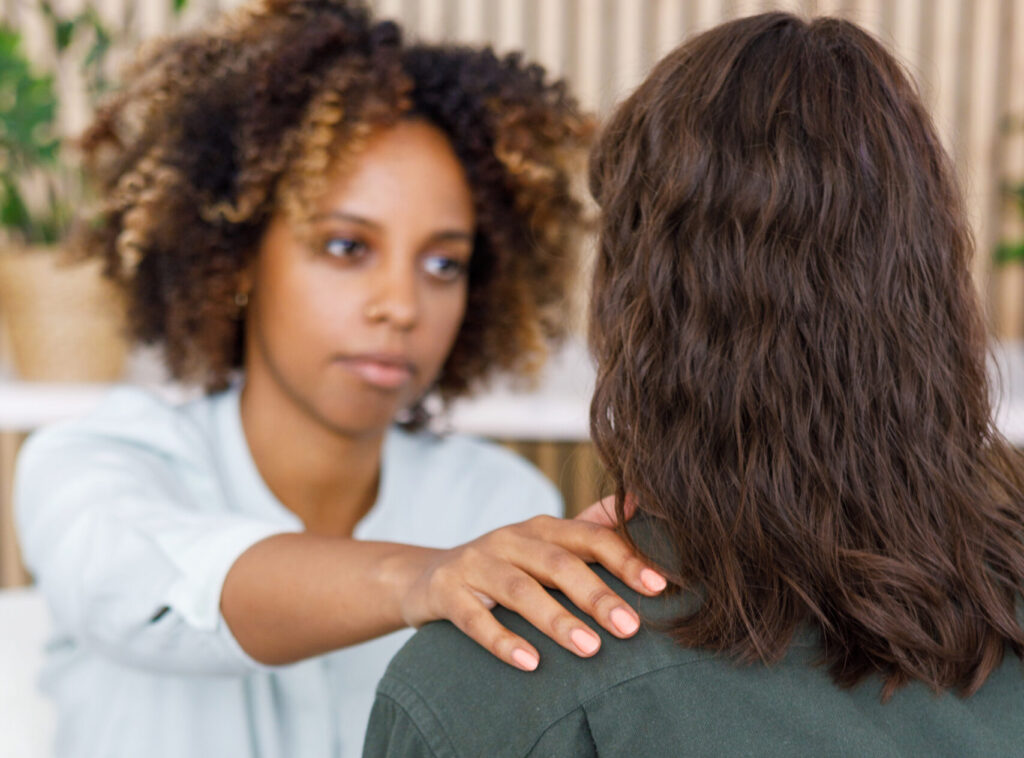When someone you love is struggling with addiction, watching them refuse help can be one of the most heartbreaking experiences you’ll ever face. If you’re in Tampa or anywhere in Florida, you might be wondering: “Can I force someone into rehab?” The answer is complex, but there is hope—and legal pathways exist to help your loved one when they cannot help themselves.
At 7 Summit Pathways in Tampa, FL, we understand the desperate feelings that drive families to ask this question. We’ve helped countless Florida families navigate these difficult decisions while providing compassionate, expert addiction treatment. Whether your loved one enters treatment voluntarily or through legal intervention, recovery is possible.
The Reality of Addiction in Florida
Florida faces significant challenges with substance abuse. The National Institute on Drug Abuse reports that as many as 23.9 million people need substance abuse services but only 2.6 million, or about 11 percent, actually receive help. For families watching their loved one spiral deeper into addiction, waiting for them to “hit bottom” or decide to seek help on their own isn’t always an option—especially when their life is in immediate danger.
The good news? Yes, you can force someone into rehab in Florida under specific circumstances, thanks to the state’s Marchman Act. However, this isn’t a decision to take lightly, and there are important legal criteria that must be met.
What is the Marchman Act in Florida?
The Marchman Act, also known as the Hal S. Marchman Alcohol and Other Drug Services Act, is a law that was passed in 1993 in the State of Florida. This progressive legislation provides a legal framework for involuntary commitment to substance abuse treatment when someone cannot make rational decisions about their own care due to addiction.
The Marchman Act is a Florida law that allows for the involuntary commitment to substance abuse treatment facilities for individuals who are a danger to themselves or others due to addiction. It’s designed to help when traditional approaches—like interventions or family pleas—have failed to convince someone to seek treatment.
Who Can File a Marchman Act Petition?
Florida law allows several people to petition for involuntary commitment:
- Spouse, parents, or relatives with knowledge of the person’s substance abuse
- Guardian appointed by the court
- Any three adults who have firsthand knowledge of the person’s addiction and substance abuse patterns
The Marchman Act is a law that allows any 3 adults with first-hand knowledge of a person’s addiction to petition the court and force someone to go to rehab.
When Can You Force Someone Into Rehab? Legal Criteria
You cannot force someone into rehab simply because they use drugs or alcohol, or even because they refuse treatment. However, if the person refuses treatment assessment for a substance use disorder, you have the option to petition the court to exercise the Marchman Act and commit the person involuntarily to addiction treatment.
The person must meet at least one of these specific criteria:
1. Danger to Self or Others
The person in question has inflicted, attempted to inflict, or threatened to cause any type of physical harm to themselves or another person
2. Impaired Decision-Making
Your loved one needs treatment but is mentally impaired to the point where he or she cannot make a sound or rational decision based on that specific need
3. Loss of Control
Your loved one has lost the power to control his or her substance use and can benefit from professional help
How Does the Marchman Act Process Work?
The process for involuntary commitment in Florida involves several steps:
Step 1: File the Petition
You first need to contact a treatment facility to ensure that there is a bed available for your loved one. Your county clerk’s office, such as these in Pasco County or Miami-Date County, have links that provide the necessary forms that have to be completed.
The petition must include:
- Full description of the person
- Details on where they can be found
- Which facility they will be taken to
- Day and time a bed will be available
- List of medical conditions and current medications
Step 2: Court Hearing
Once the petition is filed, the hearing will be held within 10 days. If the judge agrees to the petition, law enforcement will serve the person with the Marchman Act order.
Step 3: Assessment Period
Once all relevant testimony has been heard by the court, it may enter an order for involuntary assessment to assess and stabilize the impaired individual for a period not to exceed five days.
Step 4: Treatment Order
The findings of that assessment are then reviewed with the court which may then enter an order for involuntary treatment for a period not to exceed 60 days. For a complete understanding of this process, read our detailed guide on the Marchman Act in Florida.
Types of Involuntary Commitment in Florida
Florida provides several pathways for involuntary substance abuse treatment:
Emergency Admission
A doctor, husband or wife, parent, relative, or any responsible person with knowledge of a person’s substance usage can request an emergency admission to treatment. Certification is necessary to accompany the request for emergency admission.
Protective Custody
A law enforcement officer can seek to place in protective custody someone who appears to meet the involuntary admission criteria stated above and who is brought to the officer’s attention in a public place.
Court-Ordered Treatment
This is the formal Marchman Act process described above, requiring a court hearing and judicial order.
What to Expect During Treatment at 7 Summit Pathways
When your loved one enters treatment—whether voluntarily or involuntarily—at 7 Summit Pathways in Tampa, they’ll receive comprehensive, compassionate care designed to address the root causes of addiction.
Our treatment programs include:
- Medical Detoxification: Safe, medically supervised withdrawal management
- Inpatient Treatment: 24/7 structured care in a therapeutic environment
- Partial Hospitalization Program (PHP): Intensive daily treatment while returning home each evening
- Intensive Outpatient Program (IOP): Flexible treatment that allows work and family commitments
- Dual Diagnosis Treatment: Comprehensive care for co-occurring mental health conditions
Specialized Services for Lasting Recovery
- Family Therapy Program: Healing relationships damaged by addiction
- Group Therapy: Peer support and shared experiences
- Trauma Therapy: Addressing underlying trauma that fuels addiction
- Medication-Assisted Treatment: Evidence-based medical support for recovery
Does Involuntary Treatment Actually Work?
One of the biggest questions families have is whether forced treatment can be effective. The research might surprise you.
Rehab seems to work just as well, if not better, for people who were involuntarily committed compared to those who chose to go to rehab. What is interesting about involuntary commitment is the success rate. When people enter treatment voluntarily, they want to make a change… On the other hand, the involuntary nature of being committed might seem like a recipe for disaster, but it is not. The results are quite similar to those achieved by people who commit themselves to treatment voluntarily.
At 7 Summit Pathways, we’ve seen countless individuals who initially resisted treatment eventually embrace their recovery journey once they experience the benefits of sobriety and healing.
Alternatives to Forced Rehab: What to Try First
Before pursuing legal action through the Marchman Act, consider these alternatives that might convince your loved one to seek help voluntarily:
Professional Interventions
A rehab clinician may be able to provide an intervention, which involves an organized attempt to confront a loved one about how their alcohol or drug abuse has affected all those around them. Learn more about how drug interventions work and consider professional guidance.
Family Support and Boundaries
Understanding how to help someone dealing with addiction and how to set boundaries with family members can create the motivation needed for voluntary treatment.
Medical Professional Involvement
You could also try to get their doctor to help or ask a medical professional to discuss addiction with them.
Treatment Options Exploration
Look for treatment centers that might appeal to them in terms of the location or the services provided, such as legal services, family counseling, educational help, medical treatments, and mental health services.
Supporting Your Family During This Crisis
Addiction affects the entire family system, not just the person using substances. Most calls from families in Florida or anywhere else in the country are from those whose loved one has gone to treatment or attempted to correct the addiction or mental health concern multiple times. The common denominator in almost all of these situations is families who did nothing different; they only allowed the substance user or loved one with a mental health disorder the opportunity of trying to better themselves.
Consider these resources:
- The Importance of Family Participation in Treatment
- How to Cope When a Loved One Has an Addiction
- How to Parent a Child Struggling with Addiction
Legal Considerations and Professional Guidance
While Florida does not require you to have an attorney to petition the court for the Marchman Act, legal guidance can significantly improve your chances of success. The expert guidance of a lawyer can improve your chances of successfully getting your loved one into a treatment program. A lawyer can help you understand the ins and outs of this complex civil procedure.
100% of our callers believe that it will take a legal order to help their loved one, and yet over 95% of those who hire us are able to bypass the courts and achieve a better outcome. Professional interventionists and treatment specialists can often help families find solutions that don’t require legal action.
Rights of the Individual During Marchman Act Proceedings
It’s important to understand that involuntary commitment laws permit compulsory admission to rehab in Florida for individuals who pose a threat to themselves or others, or whose decision-making capability is compromised by addiction. These laws protect the rights of individuals during the process, including the right to a court hearing, legal representation, and the ability to appeal decisions.
Involuntary commitment petitions preserve the civil rights of the person with the SUD by giving them the right to an attorney during the process and the right to petition the court for a writ of habeas corpus. They’re also allowed to be present at the hearing, cross-examine witnesses, and appeal.
Common Questions About Involuntary Rehab in Florida
How Long Can Someone Be Held for Treatment?
In Florida, for instance, the court can order treatment for up to 60 days. The initial assessment period cannot exceed 5 days.
What If They Don’t Meet the Criteria?
Unfortunately, even if a person uses substances a great deal, and refuses to go to treatment, this is not enough to invoke a Marchman Act. The specific legal criteria must be met.
Can Law Enforcement Get Involved?
A law enforcement officer may choose to use the Marchman Act if a person is obviously under the influence of substances in a public place and their behavior has attracted the law enforcement officer’s attention.
Finding Help Without Court Orders
Remember that many people enter treatment voluntarily when presented with the right information and support. Consider these approaches:
- Educational Resources: Share information about addiction as a medical condition
- Treatment Center Tours: Visit facilities like 7 Summit Pathways to show them quality care options
- Success Stories: Share recovery stories that might inspire hope
- Professional Consultations: Schedule assessments with addiction specialists
When Every Day Counts: Getting Help Now
If you’re reading this article, you’re likely in crisis. Your loved one’s addiction may be progressing rapidly, and you feel like time is running out. Whether through voluntary admission or the Marchman Act process, the important thing is getting your loved one into treatment.
At 7 Summit Pathways in Tampa, we work with families every day who face these impossible decisions. We understand the legal complexities, the emotional turmoil, and the urgent need for effective treatment.
Resources for Florida Families
Government Resources:
- Florida Department of Children and Families – Substance Abuse and Mental Health: Official state resources for substance abuse treatment
- SAMHSA National Helpline: 1-800-662-4357 – Free, confidential, 24/7 treatment referral service
Clinical Resources:
- National Institute on Drug Abuse (NIDA): Evidence-based treatment information
- American Society of Addiction Medicine (ASAM): Professional treatment guidelines and standards
Take the Next Step: Contact 7 Summit Pathways Today
Whether your loved one needs voluntary treatment or you’re considering the Marchman Act process, professional guidance is essential. At 7 Summit Pathways, our experienced team understands Florida’s legal requirements and can help you navigate the complex decisions ahead.
Don’t wait for rock bottom. Don’t wait for them to decide. Help is available now.
Contact 7 Summit Pathways in Tampa:
📞 Call us today at (813) 212-8129
📍 Visit us at 1910 Orient Rd, Tampa, FL 33619
🌐 Learn more at 7summitpathways.com
Our compassionate admissions team is available to discuss your options, explain the Marchman Act process, and help you determine the best path forward for your family. We work with most major insurance plans and offer flexible treatment options designed to meet your loved one’s unique needs.
Recovery is possible. Hope is real. And with the right support and treatment, your loved one can reclaim their life from addiction. Take the first step today.
Related Articles:
- Marchman Act Florida: Complete Guide
- How to Help Someone Dealing with Addiction
- Understanding Partial Hospitalization Programs
- The Role of Family Support in Addiction Recovery
- What is Dual Diagnosis?
- How Drug Interventions Work
If you or someone you know is experiencing a mental health or substance abuse emergency, call 911 immediately or go to your nearest emergency room. For non-emergency support, the SAMHSA National Helpline is available 24/7 at 1-800-662-4357.




